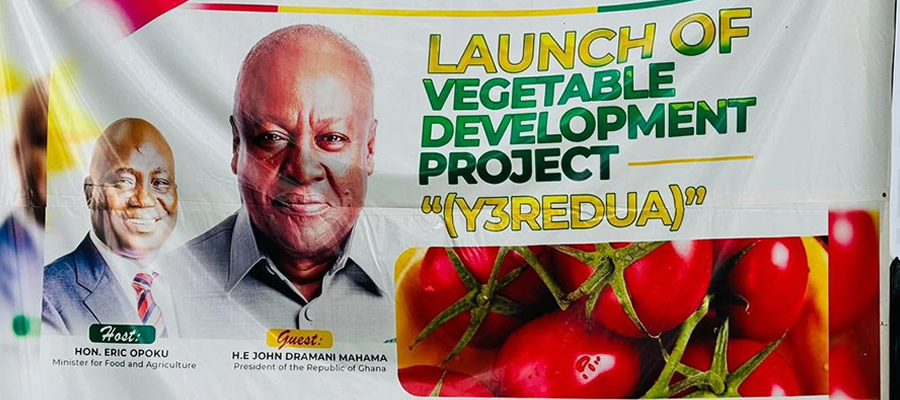

AGRICULTURE
President launches “Planting for Food and Jobs” programme

Date Created : 4/20/2017 2:42:25 AM : Story Author : Ghanadistricts.com
Dubbed “Planting for Food and Jobs” programme, the President of the Republic, Nana Addo Dankwa Akufo-Addo, on Wednesday, April 19, 2017, launched the initiative at Goaso in the Brong Ahafo Region to kick starts its implementation.
The President underscored the importance of the programme adding that it will be the solution to ending the migration of youth to city centres in search of non-existent jobs, and end to the disgraceful spectacle of Ghana importing food stuffs from neighbouring countries.
The success of the programme the president hinted would be anchored on five major interventions including;
- The supply of improved seedlings,
- provision of fertilizers,
- the provision of dedicated extension services,
- a marketing strategy for produce and
- E-agriculture.
The Planting for Food and Jobs programme which is aimed at creating about 750,000 jobs would also help increase the production of maize by 30 per cent; rice by 49 per cent; soybean by 25 per cent; and sorghum by 28 per cent from current production levels.
\He assured that all the necessary measures have been put in place to guarantee the success of the programme, President Akufo-Addo indicated that to ensure fertilizer is readily available to the farmer at affordable prices, government has reduced the prices of fertilizer by 50%.
“A 50kg bag of NPK fertilizer, the fertilizer most used by farmers, up to now has been costing GH¢115. Under this government, farmers will only pay GH¢57.50 for it. Likewise, a 50kg bag of urea now sells at GH¢47.50, as opposed to GH¢80 last year,” he said.
More so, the government in the last three months has employed 1,200 graduates from the 5 Colleges of Agriculture to help increase the number of extension service officers who will assist the farmers.
The President also expressed the appreciation to the Canadian Government who are supporting the programme with 125 million Canadian dollars over a 5 year period. The World Bank has also pledged support of $50 million for this year alone. USAID, through its Feed-The-Future Initiative, have also indicated their readiness to support the programme.





 facebook
facebook
 twitter
twitter
 Youtube
Youtube
 +233 593 831 280
+233 593 831 280 0800 430 430
0800 430 430 GPS: GE-231-4383
GPS: GE-231-4383 info@ghanadistricts.com
info@ghanadistricts.com Box GP1044, Accra, Ghana
Box GP1044, Accra, Ghana